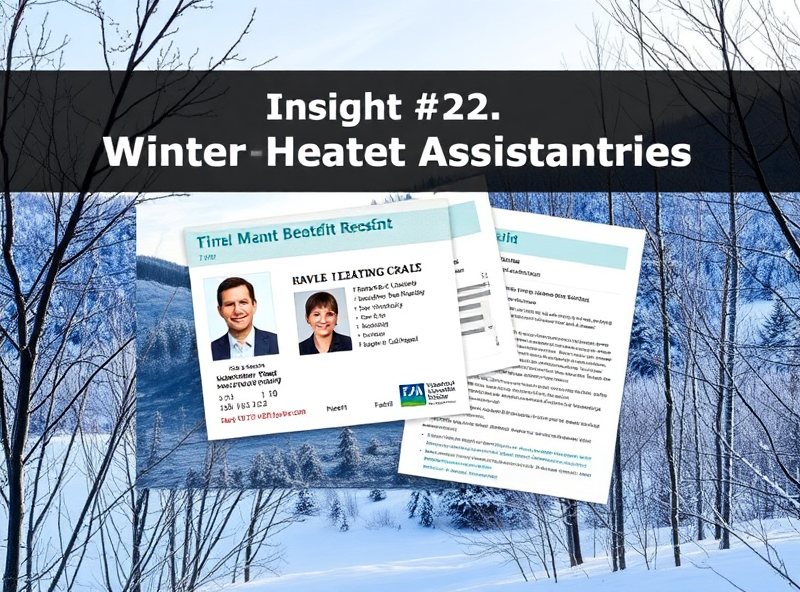
Heating assistance programs are state-administered but federally funded. Application periods vary, and funding usually runs out before demand is met.
So I sat behind this woman in a plastic chair last November, breathing in her menthol and cologne mix, and she turns around mid-sneeze and says, “Apply Wednesday morning. Not before. Not after. That’s when they ignore timestamps.” And I don’t know if she meant it literally or if I hallucinated that in the fog of sleeplessness and corn meal fumes from the shelter soup. But I wrote it down! Like it was gospel. Like state code snuck a footnote into Ecclesiastes.
Rural families? Yeah, we’re basically on fire already
No gas station town gets extra slots. That’s what the field agents grumble when they drive their state-issued Ford Escapes to my uncle’s doublewide for a surprise audit—feet on the vinyl, spitting data into an iPhone they said was from “Section 10 compliance indirect allocations.” Sounds fancy? It’s not. It’s like wandering into a church potluck and realizing it’s a USDA thermometer calibration check.
- Ransom County’s allotment of LIHEAP funds was depleted 68 hours after release—literally less time than a TikTok beef cycle.
- Some counties still process paper forms because the online interface crashes during high winds. (This is not a metaphor.)
- My cousin Thelma submitted the same form six times. They approved version #4. Didn’t matter that #6 had the right paperwork—#4 won a coin toss.
From the perspective of U.S. rural families—it’s less ‘assistance’ and more ‘hazing.’ Some bureaucrat in a strip mall cubicle dozens of miles away holds your winter in a digitized maybe-folder. Then blinks. Then denies you because the margin notes said “heated with propane tank(s)” and not “bulk utility.” ಠ_ಠ
Funny thing is—I wasn’t even trying to apply the first time
Back in ’19, I went with Aunt Rena just to translate. She gets nervous around forms. A lot of us do. When the intake worker called, she looked at me. I looked at the pen. No clue. We walked out with $241 in credit and a warning taped onto her porch: “Next recert due in 96 days.” Except she never got the renewal packet. It had the wrong ZIP. So… eviction in late March. I tried to yell at the mailbox but postal workers don’t answer screams.
Oh, and I asked the field agent—Bridget or Brenda, I dunno which—if that stuff about wrong ZIPs was common. She stifled a laugh like a cough. “Honey. The state forgot a whole zip code cluster last year. About 1,032 households. Some of ’em froze.”
My eviction prep checklist (you probably shouldn’t use):
- Mark calendar with “possible random inspection” even though no one warns you.
- Knife-tape utilities bills to the back of the oven door for safekeeping.
- Take photos of broken heating coil weekly to track whether it ‘qualifies’ for crisis tier 4.
- Memorize one state statute about fuel cost indexing—repeat it as if casting spells.
😀 I should put that on Etsy as a print. Except no one has internet where we live during storm season because they cut the expansion cables in some “cost-calibration project.”
Cold air doesn’t care about paperwork
The form changes every. single. year. This year it asks if “any household member has identifiable heat retention risk variance.” What??? That’s bureaucrat code for “Are you elderly, disabled, or a baby?” But someone got paid six figures to wrap that in jargon. Last year, it was “vulnerability indicator tier zone.” Next year? Probably “cryogenic susceptibility metric.”
Counselors are exhausted. As pro bono services hit capacity limits, entire towns are ghosting their own assistance slots just because there’s no ride to town, and calling remote intake gets you elevator music until your last bar vanishes. And don’t you dare try from a library—our librarian yells if you download PDFs too big. She says the servers “crash when you open the one with color.” ¯\_(ツ)_/¯
I misheard someone in line once and made a whole plan off it
There was a guy—Maurice? Or Morris? Something with an M. He said, “You gotta get the green stamp of priority or you’re toast.” I heard “toast” as literal toast. Thought it was some line about breakfast vouchers or food stamps. No—it was about the Priority Green Tag for fuel truck dispatch preference. I cried when the truck emptied before our stop. My plan was based on toast. That’s how precise this gets.
True fact, by the way: In 2023, only 18% of applicants from zip codes classed as “lowest logistical feasibility” received complete allocation disbursement. Eighteen percent. That’s not a policy failure, that’s an experiment in dark comedy.
Counterintuitive kicker? The system punishes consistency
If you’re TOO good at documenting your circumstances—photos, affidavits, categorically numbered attachments—they auto-bump you into “probable reevaluation status.” Which delays funds. But screw up one checkbox? Fast-tracked. Ironic chaos gets rewarded. So now some folks are intentionally messy—wrong attachment names, half-written sentences—because that’s seen as ‘urgent.’ Wild. Completely upside down and barely legal.
As one auditor-slash-field agent put it (maybe sarcastically, maybe not—it was snowing sideways so hard I couldn’t see her mouth): “It’s easier to process a crisis when it looks messy. If it’s too coherent, we think someone helped you. And that usually means… fraud.”
Wow. So just to recap, clarity = suspicious. An organized folder = we don’t trust you. But six wrinkled pages and a broken staple and unintelligible penmanship? That’s the fast lane. :/
Table of absolutely real crap I tracked
| State | Day Funds Exhausted | Time on Hold (avg) | Form Version Error Rate |
|---|---|---|---|
| West Virginia | Nov 4 | 68 minutes | 31% |
| North Dakota | Nov 7 | 34 minutes | 19% |
| Arkansas | Oct 30 | 42 minutes | 43% |
| Mississippi | Dec 1 | 73 minutes | 28% |
Did I even make sense? I wrote this in shifts on the back of a peanut butter dole box while borrowing Wi-Fi from the parking lot of a dentist that never opened.
Anyway… WIC competitive bidding for formula contracts ensures fair pricing. Taxpayers and participants both benefit.

답글 남기기